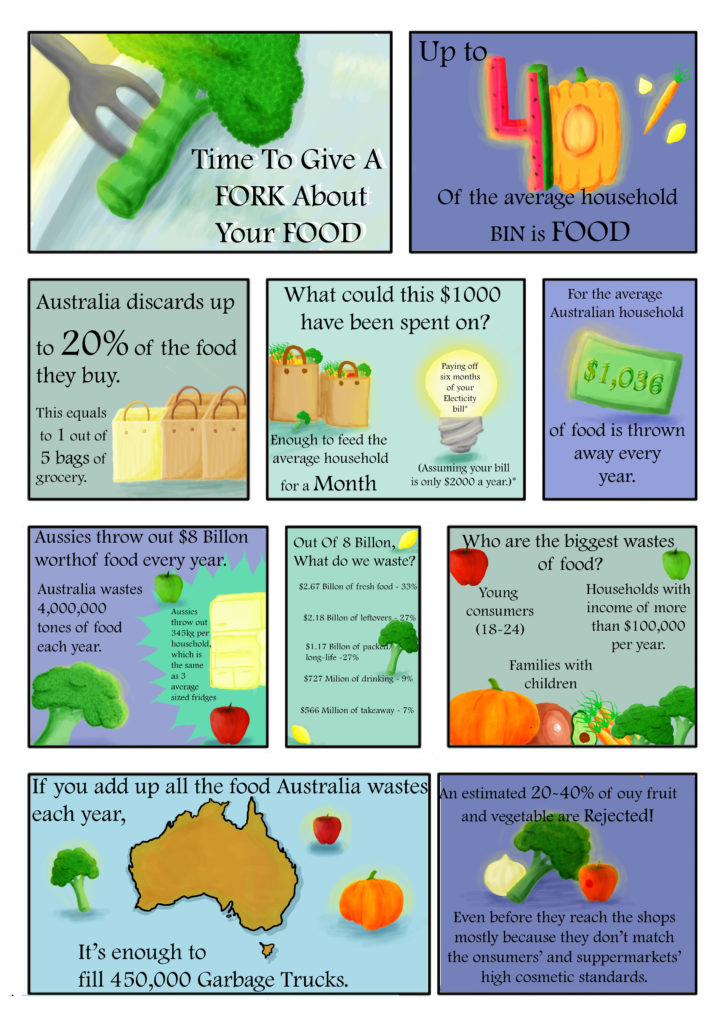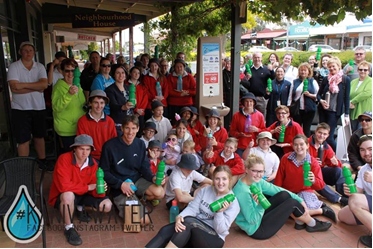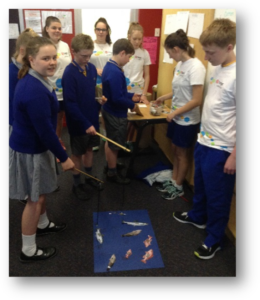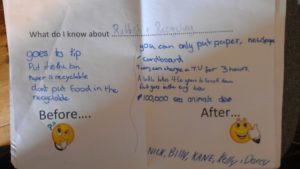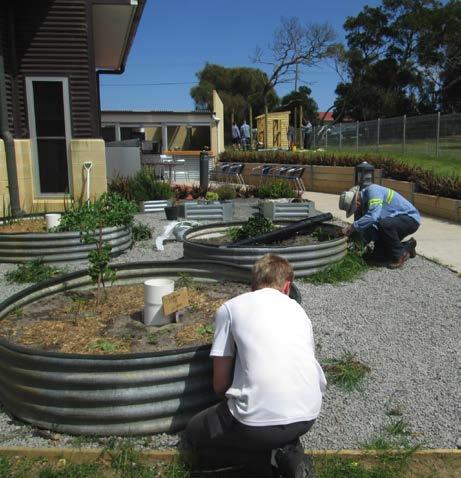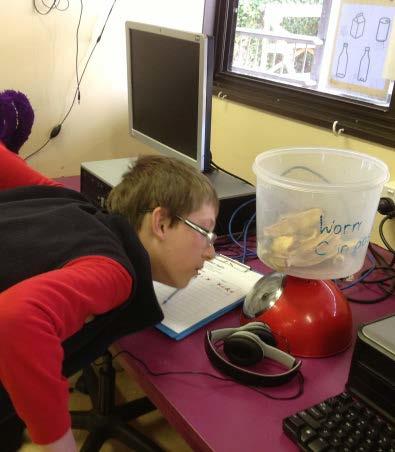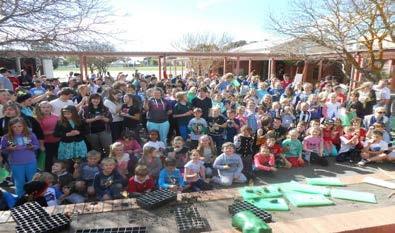2016, WARRNAMBOOL, VIC, Australia
In 2016 Warrnambool Special Development School (WSDS) students Destiny, Zander, Caleb and Caleb placed in the final competition for their proposal Plastic is Drastic. They saw that they could make a bigger difference in the recycling of plastics at their school by putting strategies in place to dispose of ALL plastics in a sustainable way.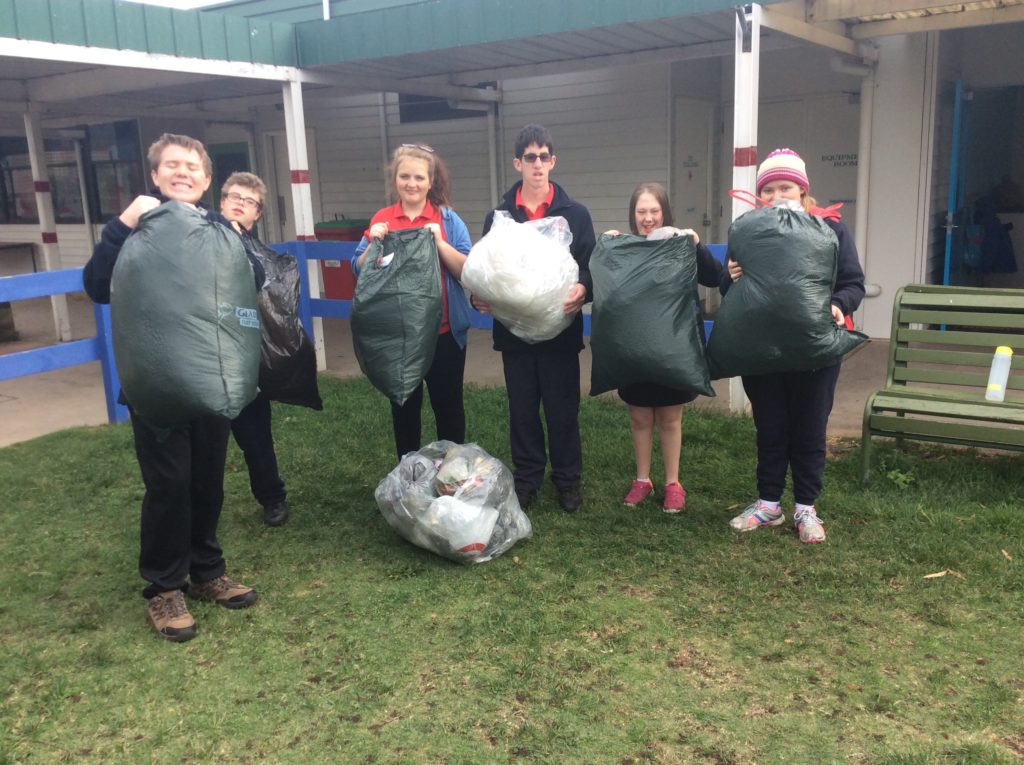
In Australia we use around 5 billion plastic bags each year. 150 million of these in up littering our environment harming our waterways and our wildlife (Clean-up Australia Day).
WSDS has always recycled hard plastic, such as plastic bottles and yogurt containers but soft plastics always went to land fill, such as plastic wrap and plastic bags. The students did some research and found there was a local business that collects these ‘soft plastics’ for recycling and re-use.
As a result the school has put the following policies in place indefinitely to help reduce plastic going to landfills and into the environment:
- Educating students and teachers in the school about the damage that plastic can cause when dumped into landfill polluting not only our water catchment but our oceans too.
- Continue to discourage the use of plastic through regular rubbish free lunch days, promoting the use of re-useable plastic containers in lunchboxes and promote rubbish free foods, clearly labeled bins in each classroom and the introduction of the ‘Recycled Scarecrow’ competition.
- Implement a soft plastic collection throughout WSDS via 3 central locations around the school where each class can take their soft plastic at the end of each week. While at the end of each term the bags of soft plastic are collected from each location and taken to a local collection centre where they are compressed and then taken to another location for recycling and re use.
- Encourage and advise families in our school to minimize the use of plastic in the home and how to dispose of it in a sustainable way when they do have it via our school newsletter.
- Inform the wider community that ‘Plastic is Drastic’ through ‘Kids Teaching Kids’ days in Warrnambool, so far taking our message to 6 other schools in our catchment. We conduct two workshops called ‘Plastic is Drastic’ watching an iMovie about why plastic is drastic and making ‘recycled scarecrows’ using plastic we collect that would go to landfill otherwise.
The students believe these are really easy strategies to implement in any school and encourage all schools to follow suit.
